How 'Kindred' Went From Literary Masterpiece to Must-Watch TV
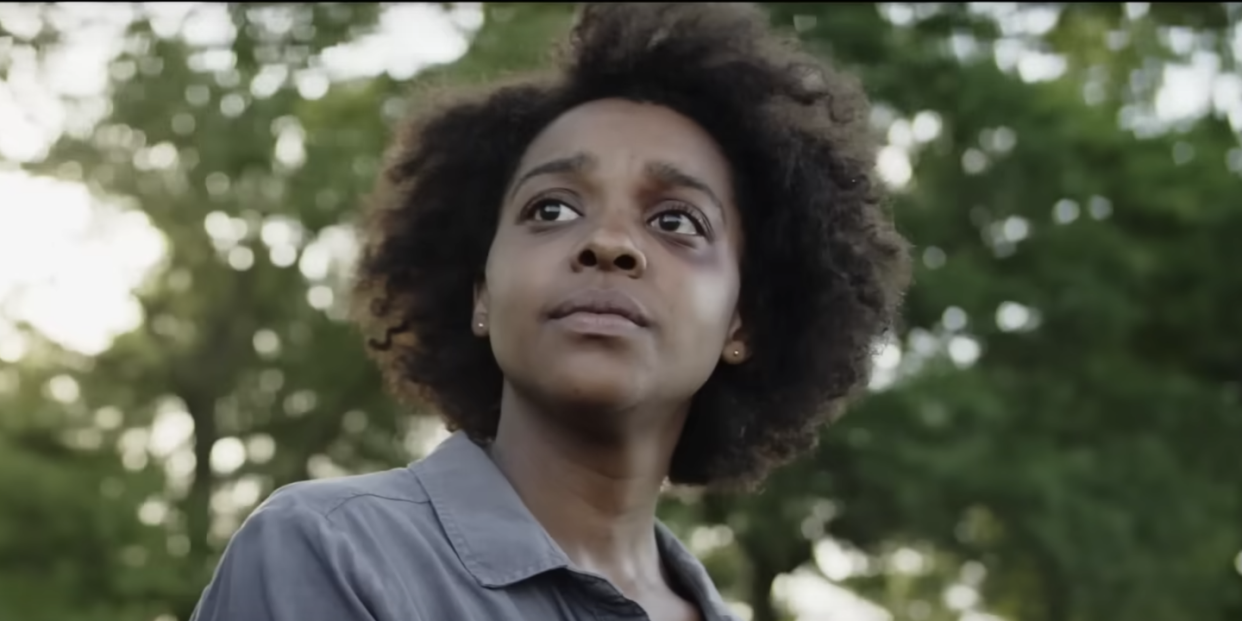
- Oops!Something went wrong.Please try again later.
"Hearst Magazines and Yahoo may earn commission or revenue on some items through the links below."
When Branden Jacobs-Jenkins set out to adapt Kindred for television, one essential question guided him: “What would Octavia Butler do?”
Ever since the seminal science fiction writer died too soon in 2006, at just 58 years old, generations of writers shaped by her influence have asked the same question. Jacobs-Jenkins is one of those writers: as a bookish child raised on speculative fiction, everything changed when a babysitter pressed Butler’s Patternist series into his hands. “She felt like a secret,” Jacobs-Jenkins tells Esquire. “There was nothing else I could read that had people who looked like me. It was a very different imaginative experience.”
Though Butler was celebrated in her lifetime, earning recognition as the first science fiction writer to receive a MacArthur Fellowship, she “felt like a secret” for decades to come. As comic artist Damian Duffy, who adapted Kindred into a graphic novel, put it, "She is so under-appreciated. She should be as famous as [Isaac] Asimov or anyone else.” Now, Jacobs-Jenkins’ generation has come along to solidify Butler’s rightful place in the science fiction pantheon, with Kindred being just the first of five on-screen adaptations in the pipeline. “It’s been such an honor to watch the world catch up to her,” Jacobs-Jenkins tells Esquire. In Kindred, Butler’s fourth and best-known novel, a Black woman named Dana finds herself violently transported back in time to the antebellum plantation where her ancestors were enslaved. Each time she pinballs through past and present, Dana’s stays at the plantation become longer and more dangerous, forcing her to confront the gruesome legacies of slavery, misogynoir, and white supremacy. (Kindred ranked fifth on Esquire’s list of the 50 Best Sci-Fi Novels of All Time). Jacobs-Jenkins’ version, now streaming in its entirety on FX and Hulu, transplants Dana’s modern life from 1976 to 2016, where her relationships look different than readers might remember.
A two-time Pulitzer Prize finalist for Drama, Jacobs-Jenkins is a daring contemporary playwright whose works include An Octoroon, Gloria, War, Appropriate, Neighbors, and Everybody. Before Kindred, he made the leap to television with Watchmen, telling Esquire that Watchmen unlocked “a willingness to rethink what adaptation is.” Jacobs-Jenkins Zoomed with Esquire from his home office, where stacks of books threatened to crowd him out of the frame. This interview has been edited for length and clarity.
ESQUIRE: When did you first start reading Octavia Butler?
BRANDEN JACOBS-JENKINS: I grew up very bookish, and my way into reading was speculative fiction. I was obsessed with Stephen King, and Ray Bradbury was huge for me. I had a babysitter named Kim, who was a pre-med student at Howard University. She noticed what I was reading and said, "I think you should read Octavia Butler." She brought me copies of her books, which were those very famous pocket editions of the Patternist series. It was a huge deal for me because it was the first time I'd seen brown-skinned people on the cover of any books like this.
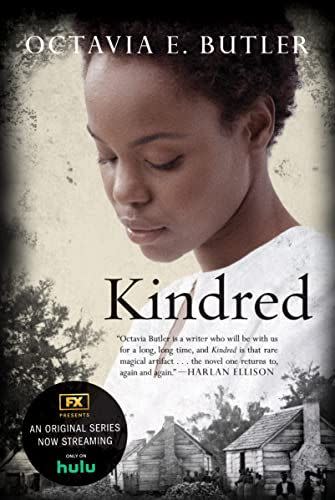
Kindred
amazon.com
$10.69
amazon.comI devoured those books. But this was pre-Amazon, so to find the books, I’d go to bookstores and hope to see them on the shelves. Over the course of many years, I amassed a collection and read through all of Octavia’s work. At that time, she felt like a secret. There was nothing else I could read that had people who looked like me. It was a very different imaginative experience. Then in college, I saw her on the syllabi for women's studies classes. It came as such a surprise that something I read for fun was part of the canon.
What was your first impression of Kindred?
It’s one of those books where every time you return to it, the layers reveal themselves. The first time I read it, I was very captivated. because as an aspiring young writer, it felt like one of those books that was written for me or about me. I had a complicated family history of Black and white ancestors, and I’d never seen that before. I felt very affirmed and very inspired. Kindred also made wanting to be a writer easier, because it felt like, "Here was someone who actually stumbled into this part of the forest where I seem to be.” It made such an impact on me that I read it again and again. Three or four reads later, it was 2010; I closed the book and I said, "I think this is a TV show."
What about Kindred seemed conducive to television?
Kindred is about time’s passage and the experience of getting to know characters intimately over time. Dana literally drops in on Rufus' life from his earliest years up until his last years. I realized, "This is the only book of Octavia’s that's been under option since 1979 when it was published." It took so long to reach the screen because everyone wanted to make a movie out of it, but you just can't get at the themes and the richness of this in two hours. There's a reason why all these sci-fi novels work best as television series. These writers were working at such massive scales of intellect that you would lose something essential if you didn't really think about the element of time as the canvas for the emotional story.
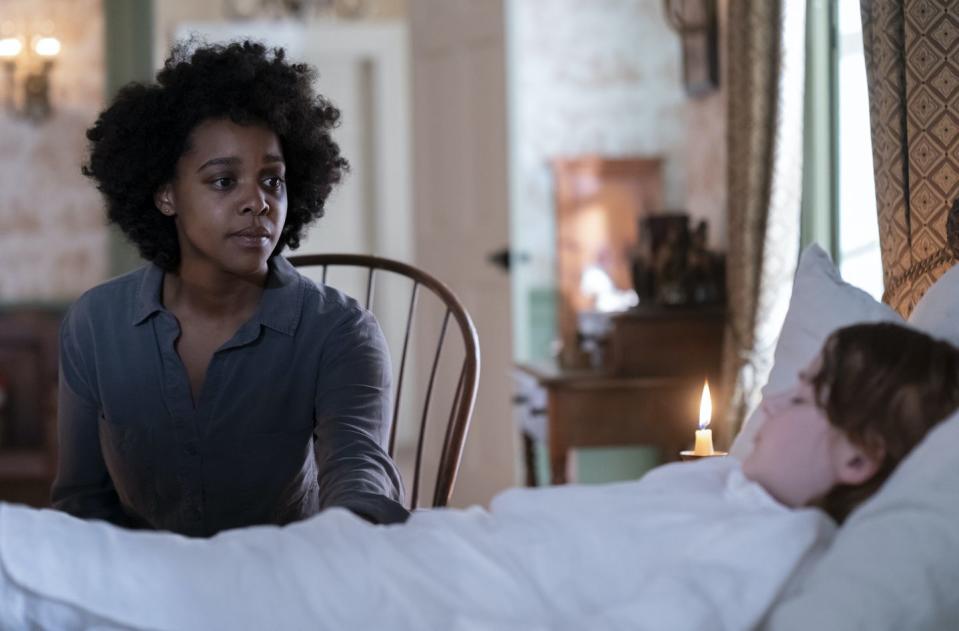
You mentioned that Octavia Butler felt like a secret to you. She's finally arrived at a moment of recognition as a canonical writer, but there was a long period of time where she was under-appreciated. Why is she enjoying this long-deserved resurgence now?
I think the most Pollyanna-ish version of it is that she was such a huge influence on a generation of creatives who are just now coming into their own and citing her as important. They're proselytizing about her ideas as a significant part of what shaped them. She planted these little seeds and now we're all speaking back to her gift and her influence. But also, she was a writer very much ahead of her time, and now we’ve come to the time that she was ahead of. It’s no secret that starting in 2016 and beyond, suddenly her dystopian questions about climate, race, and society were being looked at as prophetic. Even in the ‘90s, people called her a prophet, and she said, "Really, all I was doing was reading the newspaper and thinking about what the natural consequences of this would be." That’s part of it—suddenly we’re living in the world that she was warning us against. When we first began working with FX on Kindred in 2016, all of her books were still open for option—you couldn't get people interested in what she was doing or who she was. It’s been such an honor to watch the world catch up to her.
Now there are four or five other adaptations in the pipeline, right?
There are. As a super fan, I'm thrilled. That's why I think it's ultimately a generational thing. The generation of people who grew up reading her are finally cultural participants.
What did you carry from your experience on Watchmen to Kindred?
I was working on Kindred and Watchmen simultaneously, so there's probably some cross-pollination between the two. Looking back on it, the thing that Damon Lindelof unlocked in me was a willingness to rethink what adaptation is. For most of us, when we took that job and walked in on the first day, we thought we were doing a beat-for-beat adaptation of the graphic novel. But early on, he said, "I want to make it a sequel." I realized that there are two types of adaptations: one that tries to translate the text in front of the camera, and one that tries to expand on the spirit of the work. Before that, I was working hard on a version of Kindred set in the 1970s. After that, I realized, "I have permission to experiment in a way that won't harm the property. It may actually deepen its themes or enrich its themes." That’s the big thing that Watchmen inspired me.
Why did you decide to update the present-day narrative from 1976 to 2016?
One of the guiding impulses for me was, “What would Octavia do?” I went to Merrilee Heifetz, who was her literary executor and her agent; she said to me, "Octavia would recognize that there was a need to make it for today." She wrote this book contemporary to her time, speaking to the audience she had at that moment. She couldn't see the future. She didn't know that this would become one of her most well-known books. I thought it was more important to honor her spirit and her artistic attack than to become too wedded to the specifics of the book. If I set it in the past, I worried that it would run the risk of being a museum piece—that the audience wouldn’t actually hear the radical thoughts inside of the text. The story is about contemporary sensibilities being transported into the past, so I thought, let’s make it as contemporary as we can.
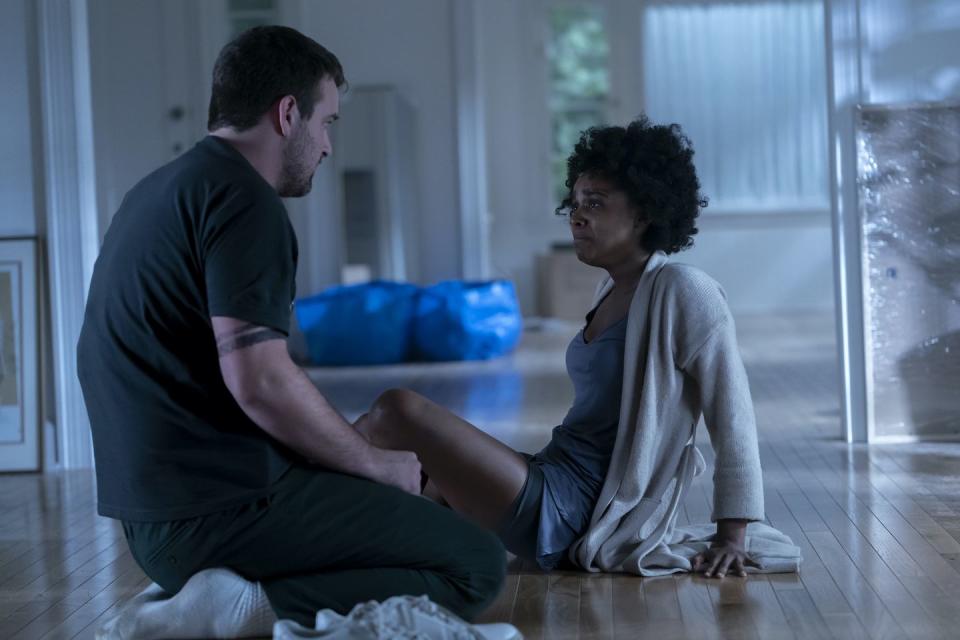
There's a thread in the book that always fascinates me—this question of what Dana isn't telling us. She's a narrator we trust, but there are large lapses of time where she’ll simply say, “Three weeks passed.” Your adaptation doesn’t have those lapses. Was that a conscious choice?
It was a huge choice made consciously. The book itself is a book, right? It’s a first-person testimony of a surreal thing that happened to a writer searching for her voice. You finish it and realize, “This is the book we’ve been rooting for her to write.” That means this is a person telling us what she thinks we want to hear about her experience. When you look at it that way, you begin to see doors she left open for us to explore. What might she not be telling us about Kevin? Why is she leaving out these three weeks?
When you start sensing those blind spots, that becomes an interesting opportunity for a TV storyteller. A similar thing happened with Watchmen. I remember going through the whole book and circling every mention of a Black person. I realized that it's an alternate history, but in that alternate history, it's not different for Black people. It’s an alternate history that’s not alternate for people of color. I brought that back to the writers’ room and it unlocked a lot for the story. All this is to say that it felt like television would give me an opportunity to tell the fullest version of Kindred. Moments where Dana might be less than amazing as a hero. Moments where Kevin might not be amazing, or where their relationship might be uneasy. It was really about trying to create something that felt more immediate and dangerous. I want to destabilize these heroes and have more at stake.
You’ve given us a lot more to chew on with Dana’s aunt and uncle. Is that another “open door” from the book?
Yes. The aunt and uncle amount to two sentences in the book, but I wanted to see what could happen with them. Early on, I spent a lot of time with Octavia’s papers at The Huntington; she was one of those writers who drafted, drafted, and drafted, trying every different version of the story. Everything we did was inspired in some way by those discoveries. In her drafts, there were aunt and cousin figures coming over to check on Dana. She also had a mother figure in a few drafts. It’s mind-blowing to think that Octavia said she never really cracked Kindred, her most iconic book. I thought, "Is there some world in which we could try to offer her a version of cracking it?"
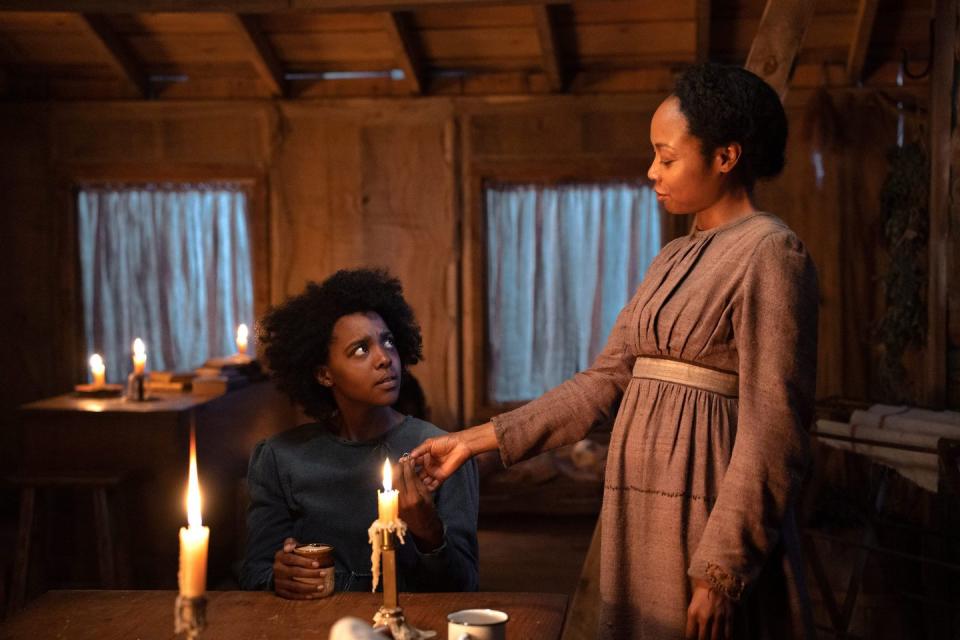
Did you draw on the papers in adding that new storyline for Dana's mother?
Yes and no. The way that we represent Olivia—even her name—you would not find in the papers. But we were inspired by the way she operates on the page.
Why was that a priority to you, to bring in Olivia and give her this fuller story?
It wasn't so much a priority as a solution. Given that the book is 45 years old, and it's a pioneering Black feminist text, I felt like there was so much to discuss about evolutions of social thought around Black femininity. I wanted Olivia to be an interlocutor with Dana who could challenge her assumptions about how to operate in the past. Different generations of women would have different reactions to this time period.
Octavia originally conceived of Kindred as a part of the Patternist books, which track the descendants of a magical man from the ancient past. That whole series is obsessed with inheritance and what we pass down to our children. Octavia wound up cutting Kindred out of the series, saying, "I think I have something that wants to stand alone. It may be a mainstream crossover." I thought, "What if we walked back that choice and gave Dana other kinship relationships that might complicate her journey, giving her more dimensionality?" It was really about leaning into Octavia's initial impulse, which was to talk about big ideas of inherited trauma, the longstanding legacy of being born of this history, and the way that it changes you.
Another big change you made was shifting the relationship between Dana and Kevin from husband and wife to strangers thrown back in time together. What motivated you there?
This has become the most controversial change, which is a little bit shocking to me. When people read Kindred, they assume that Kevin and Dana's marriage is wonderful and supportive, but I don’t think it is. He’s ten years older than her and has these very intense paternalistic tendencies. When I updated it to 2016, I thought, "I have a hard time imagining a young woman now, no matter her race, putting up with that." In the book, she brushes it off. She fights back and she wins the fights. The context for his behavior is “sometimes guys are like this,” whereas now, women shut this down.
But marriage was different during Octavia’s lifetime. She was only a few years out from Loving v. Virginia, and there were still miscegenation laws in her lifetime. There was something very important and radical about her saying, "Here's an unquestionable interracial marriage at the center of this story." Now we’ve evolved in such way that we know we're supposed to root for those people. I wanted to feel like there were real stakes—what happens if Kevin and Dana don't work out? What's the version of this where the marriage doesn't succeed, or the love story falls apart? It felt more interesting to paint a complex portrait of an interracial couple falling in love in real time. Our endgame is to end the series with them married. Can we convincingly get them married? Can we turn them into the married Kevin and Dana that everyone knows and loves?
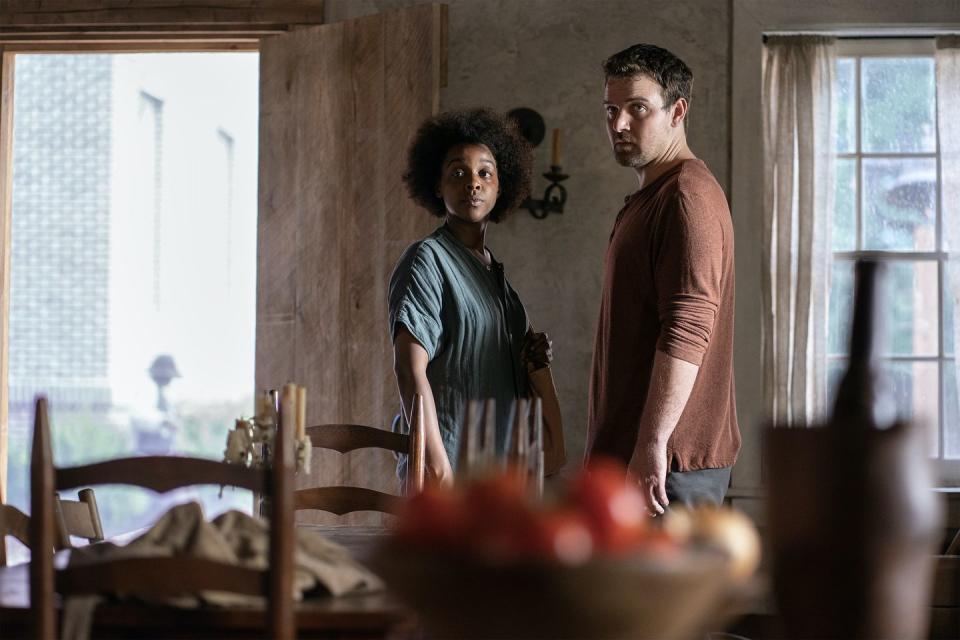
Keeping in mind that the book is filtered through Dana’s point of view, sometimes I find it hard to believe Kevin. There's that odd moment in the book where Dana witnesses a whipping and thinks, "But I couldn't dare tell Kevin about it." You can't tell your husband that you were just traumatized? Part of that might have to do with the fact that Octavia was an avowed asexual by the end of her life. In those early books, she really struggled with how to represent the emotional texture of a committed relationship. As her books go on, those relationships get even weirder—by Fledgling, she went for the queerest ideas of marriage. But I’ve always felt like maybe this was something else she felt she didn't crack. She didn't quite paint this relationship to the best of her abilities.
The series ends on a major cliffhanger, but fans of the book know that there’s so much left to come. What’s the status of Season Two?
The writers and I are working very hard on the plans for Season Two. We have a lot planned for Season Two, Season Three, and Season Four. But we need people to watch the show so that we can get our second season. I always encourage people to read the book, though if you don't want to spoil it for yourself, definitely don't keep reading. But yes, there are plans for season two. Big dreams.
You Might Also Like

